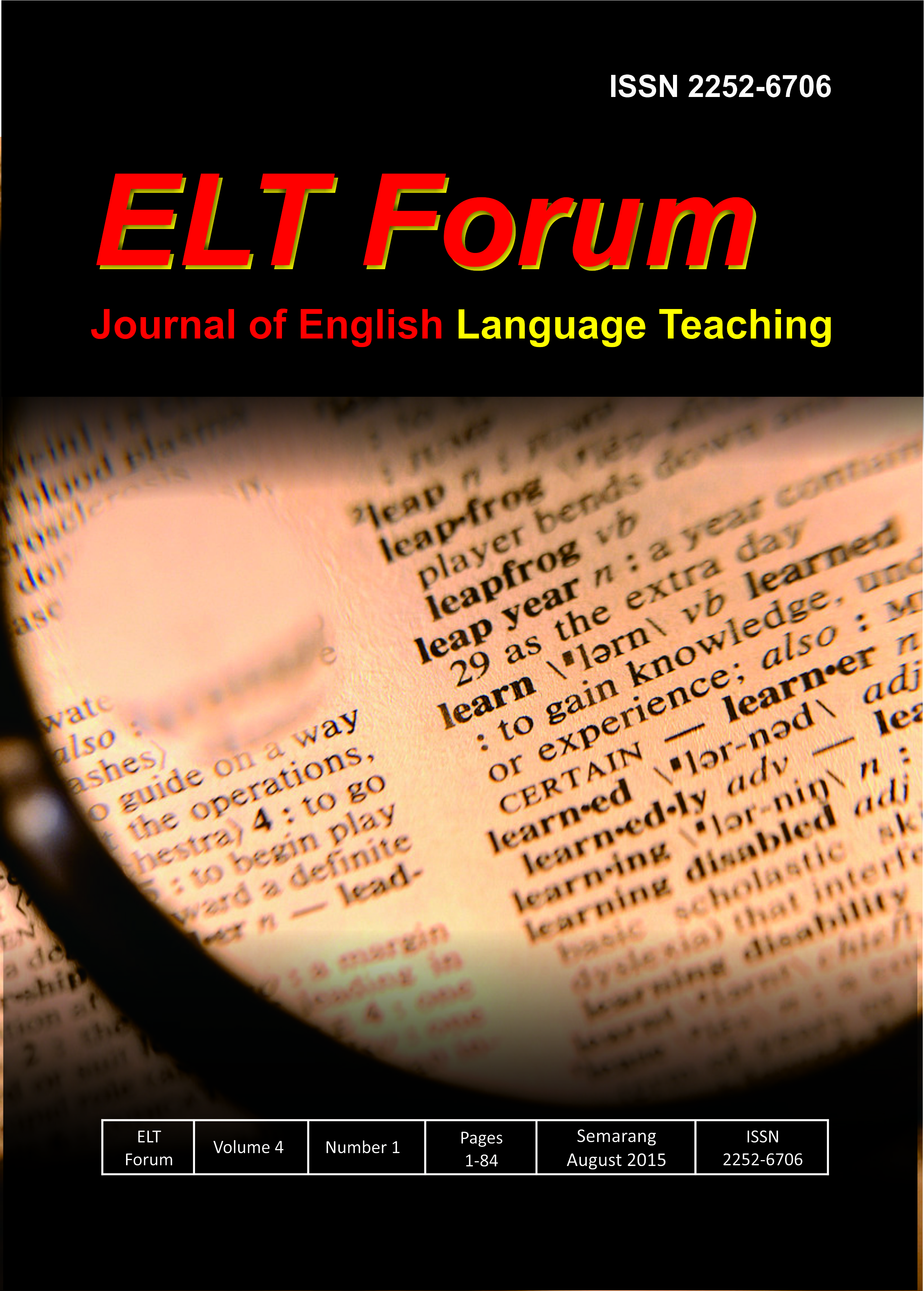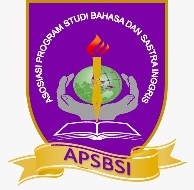IMPROVING STUDENTS’ MASTERY OF ENGLISH SYNONYMS AND ANTONYMS USING BINGO AND DOMINO GAMES (A Classroom Action Research on the Eighth Grade Students of SMP Negeri 3 Maos in the Academic Year 2013/2014)
Abstract
This final project is concerned with the use of bingo and domino games in improving students’ mastery of synonyms and antonyms. The objective of this research is to investigate to what extent bingo and domino games give their influence in teaching synonyms and antonyms to the junior high school students. This study used action research design. There were two cycles of action in this study. This research was started with an initial pre-test and ended with a final post-test. In each cycle there were pre-test, treatment, and post-test. Tests were used to collect the quantitative data. Meanwhile, observation checklist and questionnaire were used to gather the qualitative data. The students of class VIIIA of SMP Negeri 3 Maos were chosen as the subjects of this study. The study showed that the games could give a great help to the students in improving their mastery of synonyms and antonyms. By comparing the mean score of initial pre-test and final post-test, a significant improvement could be seen. The students’ mean score of the final post-test (86.95) was higher than that of the initial pre-test (33.09). This improvement was also supported by the results of observation checklists and questionnaire. Based on the observation checklists, the students’ attitude improved. The students’ participation in Cycle 2 was better than that of Cycle 1. Moreover, the result of questionnaire showed that the students gave positive perception towards the use of bingo domino games. By referring to the results, it can be concluded that bingo domino games gave good contribution to the improvement of the students’ ability in mastering English synonym and antonym. Therefore, the use of those games as an alternative way to teach synonyms and antonyms is recommended. Through this technique, teachers are expected to be able to increase students’ interest and motivation in learning synonym and antonym.References
Burns, Anne. 2010. Doing Action Research in English Language Teaching: A Guide for Practitioners. New York: Routledge.
Webb, Stuart. 2007. The effects of synonymy on second-language vocabulary learning. Reading in a Foreign Language.19/2:120-136. Available at
http://nflrc.hawaii.edu/rfl/October2007/webb/webb.html
[accessed on 17/02/2014].
Bailey. 2005. Practical English Language Teaching Speaking. New York: Mc. Graw Hill.
Design of Classroom Action Research (Adapted from Kemmis and McTaggart in Arikunto, 2006)
Suprijono.2009. Cooperative Learning. Yogyakarta: Pustaka Bealajar.
Hopkins, D. 1985. A Teachers Guide to Classroom Research. Philadelpia: Open University Press.
Brown, H. Douglas. 2004. Language Assessment: Principles and Classroom Practices. United States of America: Pearson Education, Inc.
Celce, M dan Murcia. 2001. Teaching English as a Second or Foreign Language (3rd Ed). United States of America: Heinle & Heinle, a division of Thomson, Inc.
http://pubs.cde.ca.gov/tcsii/documentlibrary/characteristicsMG.aspx (accessed on 10 September 2014)
http://serc.carleton.edu/introgeo/cooperative/techniques.html (accessed on 11 September 2014)
http://area.dgidc.min-edu.pt/GramaTICa/whatspeakingis.htm (accessed on 11 September 2014)
http://www.cal.org/caela/esl_resources/digests/Speak.html (accessed on 11 September 2014)
Florez.1999. Improving Adult English Language Learners’ Speaking Skill. ERIC DIGET.In http://www.ericdigests.org/2000-3/adult.htmf (accessed on 11 September 2014)
Normayulita, A.N. 2011. The Use of Puppets as Media in Teaching Transactional and Interpersonal Conversation ( An Action Research at the Eight graders of SMP Negeri 1 Slawi in the Academic Year of 2010 / 2011 ).
Maharani, Lutfiana Tyas. 2014. IMPROVING STUDENTS’ SKILL IN WRITING DESCRIPTIVE TEXT BY USING FOUR SQUARE WRITING METHOD (A Classroom Action Research at Grade VIII Students of SMP Negeri 1 Alian in the Academic Year of 2014/2015).



_.jpg)
_.jpg)




